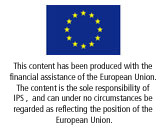By Khaled Mansour*
UNITED NATIONS, Jun 15 (TerraViva) With more than seven billion people on the planet, the international community should ask in Rio de Janeiro what sustainable development means for the world’s 2.2 billion children.
After all, the future we want, and are making, will be theirs and their children’s to live. And it should be more equitable.
Sustainable development is about actively recognising, understanding and acting on the interconnections between the economy, society and the natural environment.
Progress in recent decades has been unprecedented in reducing child mortality and poverty, bringing more children to school, and improving access to drinking water. Yet these improvements have not translated into equitable development.
For example, a recent UNICEF study showed that disparities between the richest and poorest 20 percent of the population in 18 of 26 countries reviewed did not decline despite a significant decrease in mortality rates for all children. Averages are masking a story of inequality.
It is not enough for UNICEF simply to argue that children must be at the heart of what sustainable development produces. The daunting task ahead for leaders is to extend development gains and reach all families. Stark disparities remain or are widening and are putting the poorest communities in many countries consistently at a disadvantage.
This is a time when the development landscape is changing – and not only because of the global economic crisis. The changes were evident at last year’s forum in Busan on aid effectiveness and are ever more apparent as the United Nations Conference on Sustainable Development in Rio approaches.
Addressing this new landscape, the U.N. secretary general has called for establishing sustainable development goals that build on the current Millennium Development Goals and “lay the foundations for dynamic economic growth, respect for the planet and social equity”.
Discussions at Rio on the post-MDG agenda could potentially help shift how the international community thinks about development and growth.
The need for this shift is evident in the intersection of the food, financial and economic crises and natural disasters of the last few years, which all contribute to a lack of stability and security at various levels. Equitable investment in social sectors, such as health and education, actually promotes social and political stability and builds resilience to future shocks.
A recent International Monetary Fund staff discussion note shows that as societies become more equitable, economic growth is more sustainable over time. In fact, it found that a 10 percentile decrease in inequality increases the expected length of a growth spell by 50 percent.
Brazil and Indonesia are examples of this – these countries have been able to weather the global recession better than others. Furthermore, Bangladesh’s improved response to natural disasters has been attributed in part to its more diversified economy, its poverty reduction programmes and its efforts to support remote, disadvantaged communities in disaster-prone areas.
And the returns on investing in children are easy to see. One extra year of schooling for girls can increase their future wages by between 10 and 20 percent – wages that they as women, more than men, reinvest in their families, kick-starting a cycle of opportunity and prosperity.
The World Bank estimates that investing in nutrition can increase a country’s GDP by at least two to three percent. Given the impact of nutrition on health, wellbeing and development, UNICEF is redoubling our efforts at both global and country level to reduce under-nutrition and stunting.
More equitable and sustainable development is feasible, morally correct and wise. It safeguards children’s rights. Investing equitably in children breaks the inter-generational transmission of poverty, creates more stable societies and contributes to sustainable growth.
Such an approach begins with directing scarce resources to where they can have the greatest impact: to children facing deprivations due to poverty, gender, geographical location or any of a number of dis¬criminatory barriers.
Ultimately, the guiding principle of children’s rights can be put into practice through a socially equitable approach to sustainable development. In other words, for development to be indeed sustainable and to benefit the generations to come – the children of today – it must be equitable.
*Khaled Mansour is Director of Communications at UNICEF in New York.



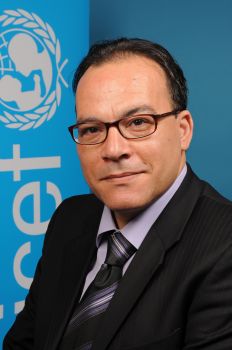
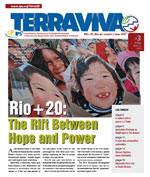
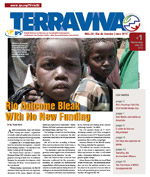
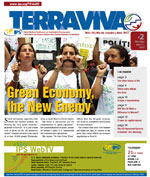

 Add to Google
Add to Google




